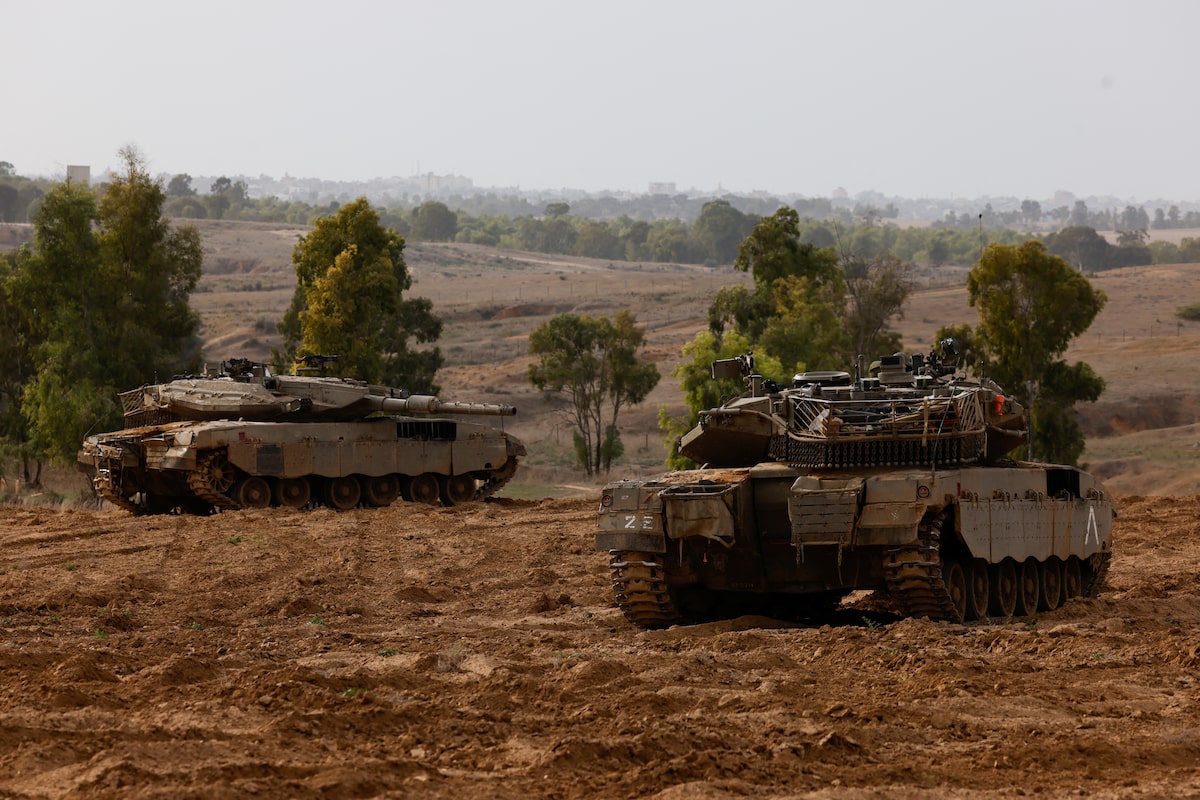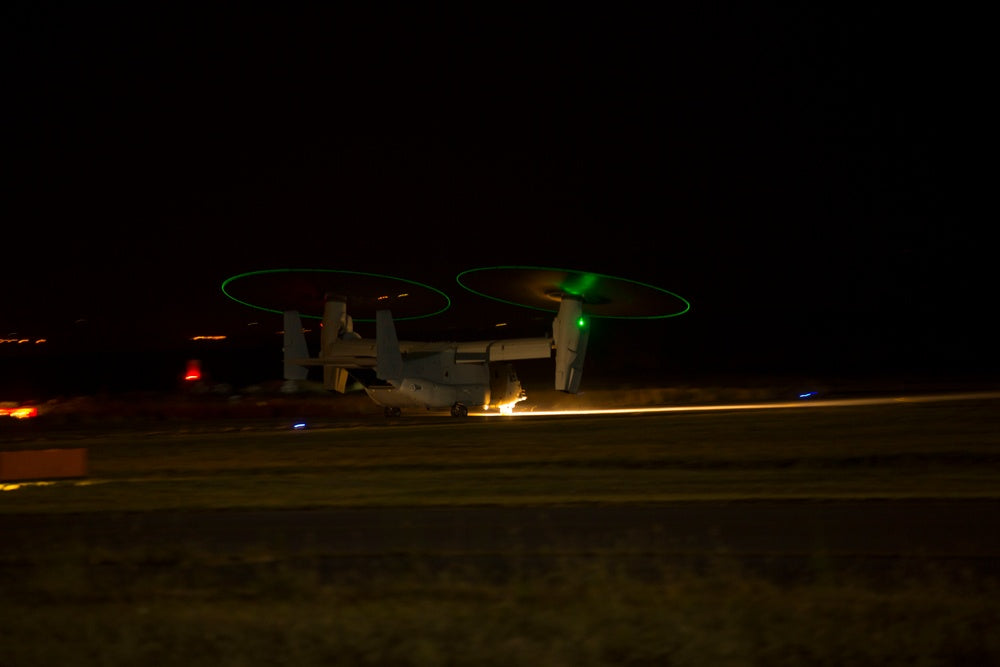
Israel rejects US-backed Lebanon ceasefire proposal
PHOTO CAPTION: Illustrative photo — Israeli tanks take position near a border with Gaza, amid the ongoing conflict between Israel and the Palestinian group Hamas, November 22, 2023. REUTERS/Amir Cohen
By Timour Azhari and James Mackenzie
BEIRUT/JERUSALEM (Reuters) -Israel rejected proposals on Thursday for a ceasefire with Hezbollah and conducted a military exercise simulating manoeuvres in Lebanon, defying allies including the United States which had called for an immediate halt in fighting.
Israel's relentless pressure on Iran-backed Hezbollah in Lebanon, including intense airstrikes and assassinations of some of its senior commanders raised concern that it will mount a ground invasion which would lead to a wider war in the region.
The military, which has vowed to secure Israel's northern border and return thousands of its citizens to their communities there, said the exercise of its 7th brigade took place a few kilometres from the Lebanese border.
Shortly afterwards the Israeli military said it was carrying out precise strikes in Beirut, where the sound of a blast was heard and smoke was seen rising in the southern suburbs, a Hezbollah stronghold.
"There will be no ceasefire in the north," Foreign Minister Israel Katz said on X. "We will continue to fight against the Hezbollah terrorist organization with all our strength until victory and the safe return of the residents of the north to their homes."
The comments dashed hopes for a swift settlement, after Lebanese Prime Minister Najib Mikati had expressed hope that a ceasefire could be reached soon,
Hundreds of thousands of people have fled their homes seeking safety in the face of the heaviest Israeli bombardment since a 2006 war. World leaders have voiced concern that the conflict - running in parallel to Israel's war in Gaza - was escalating rapidly.
Hezbollah has faced off against the Israeli military since the Shi'ite Muslim movement was created by Iran's Revolutionary Guards in 1982 to counter an Israeli invasion of Lebanon. It has since evolved into Tehran's most powerful Middle East proxy.
The United States, France and several other allies called for an immediate 21-day ceasefire across the Israel-Lebanon border. They also expressed support for a ceasefire in Gaza following intense discussions at the United Nations.
Israeli Prime Minister Benjamin Netanyahu, heading to New York to address the U.N., said he had not yet given his response to the truce proposal but had instructed the army to fight on. Hardliners in his government said Israel should reject any truce and keep hitting Hezbollah until it surrenders.
More than 600 people have been killed since Monday in Israel's strikes on Lebanon, which follow nearly a year of cross-border fire with the Iranian-backed Hezbollah movement.
Hezbollah has fired hundreds of missiles at targets in Israel including, for the first time, its commercial hub Tel Aviv, although Israel's aerial defence system has ensured that the damage has been limited.
Asked if a ceasefire could be secured soon, Lebanese leader Mikati told Reuters: "Hopefully, yes." His caretaker administration includes ministers chosen by Hezbollah, widely seen as Lebanon's most powerful political force.
On Wednesday, Israel's army chief made the most explicit public comment yet on the possibility of a ground assault on Lebanon, telling troops near the border to be prepared to cross.
Israeli fighter jets on Thursday hit infrastructure on the Lebanese-Syrian border to stop the transfer of weapons from Syria to Hezbollah in Lebanon, Israel's military said.
The Lebanese health ministry said on Thursday that at least 26 people had been killed across Lebanon in Israeli strikes overnight and throughout the day, most of them Syrians who were killed in the town of Younine in the Bekaa Valley. Lebanon is home to around 1.5 million Syrians who fled civil war there.
SHELTERING IN SCHOOLS
Hezbollah said in a statement it had bombarded the town of Kiryat Shmona an area in northern Israel with Falak 2 rockets.
Thousands of Lebanese have sought shelter in schools in Beirut. In one of them, women could be seen leaning out of classroom windows, smoking cigarettes or airing out foam mattresses they had slept on this week.
“I just want to know if there will be a little electricity at night so I can go buy a fan,” one woman said.
Aid organisations were distributing clothes and food, and checking on any medications needed by elderly people who had fled too quickly to bring their prescriptions with them.
The Israeli military said it had attacked dozens of Hezbollah targets including fighters, military buildings and weapons depots, in several areas on Thursday morning.
Around 45 projectiles were fired from Lebanon towards the western Galilee area, some of which were intercepted with the rest falling on open ground, said the Israeli military.
The relentless fighting has led some neighbouring countries to worry about the safety of their citizens living in Lebanon. Turkey is making preparations for the possible evacuation of its citizens and foreign nationals from Lebanon, a Turkish defence ministry source said on Thursday.
Israel has made a priority of securing its northern border and allowing the return there of some 70,000 residents displaced by near-daily exchanges of fire, which Hezbollah initiated a year ago in solidarity with the Palestinian group Hamas in Gaza.
Israel's airstrikes have sharply intensified since Monday, when more than 550 people were killed in Lebanon's deadliest day since the end of a 1975-1990 civil war.
The bombing follows attacks last week when pagers and walkie talkies exploded across Lebanon, killing scores of people and wounding thousands including Hezbollah members.
(Reporting by John Irish, Michelle Nichols and Humeyra Pamuk at the United Nations, Maya Gebeily in Beirut, Ari Rabinovitch in Jerusalem and Gabriella Borter and Kanishka Singh in Washington; Writing by Michael Georgy; Editing by Lincoln Feast, Peter Graff and Sharon Singleton)












